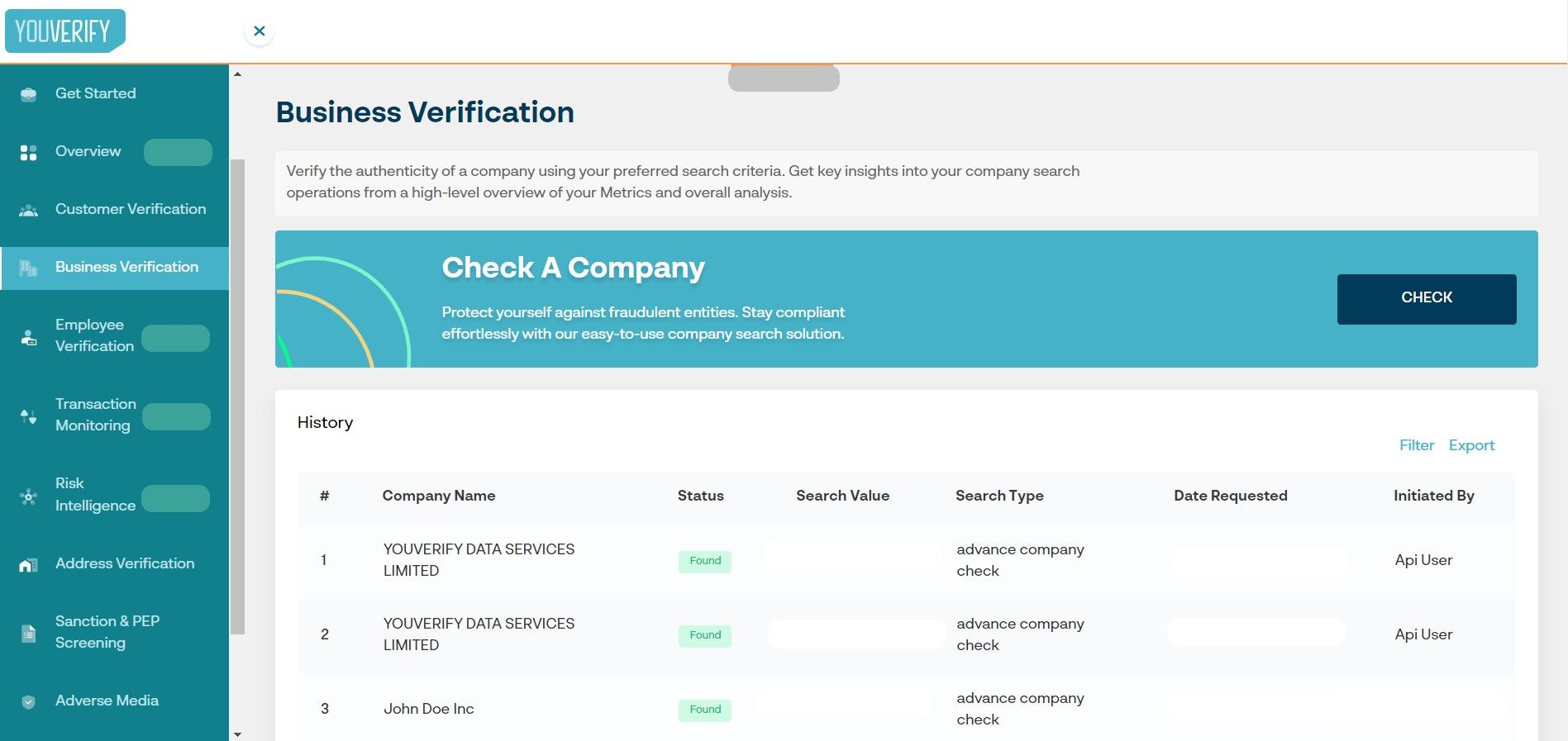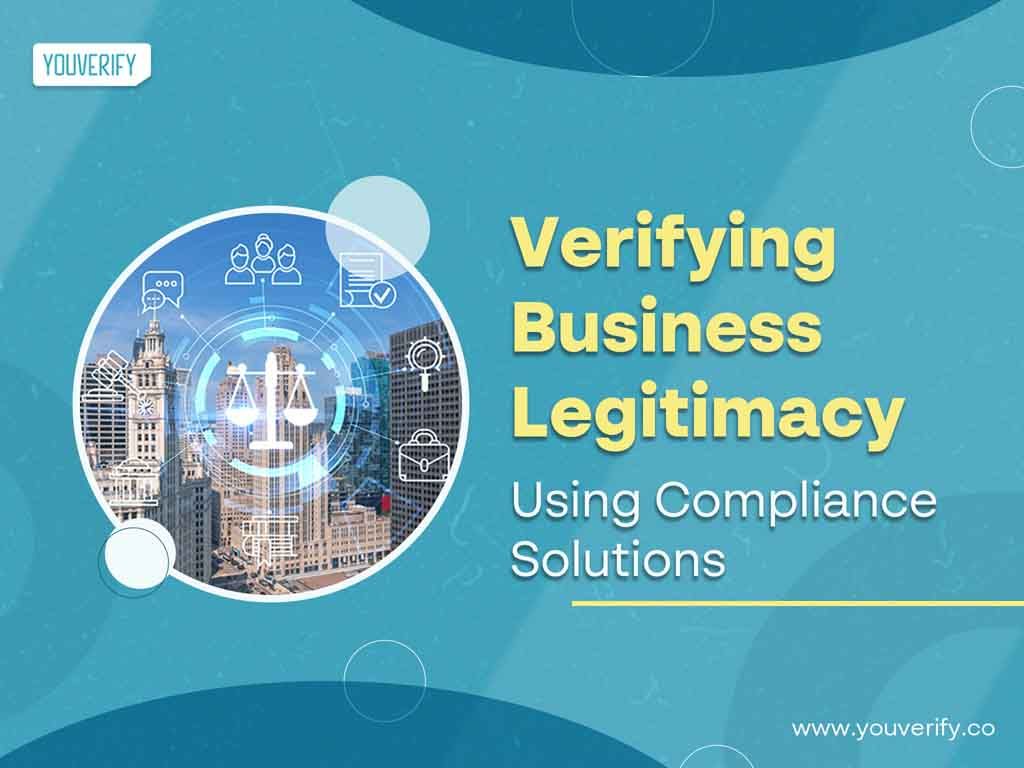In today’s world, online transactions and digital business ventures have become commonplace. While conducting business transactions online has its perks, it has given rise to fraudulent activities.
A survey conducted by PwC revealed that 47% of organizations experienced fraud in the past two years. It is therefore imperative for individuals and organizations to verify the legitimacy of businesses before engaging with them. Hence the need to engage compliance solutions.
By harnessing the power of technology, compliance solutions enable users to thoroughly examine businesses, detect potential risks, and make informed decisions.
In this article, we will delve into the importance of verifying business legitimacy and provide a comprehensive guide on how to verify the legitimacy of a business effectively.
What are Compliance Solutions?
Compliance solutions refer to tools, processes, and systems that help organizations adhere to applicable laws, regulations, industry standards, and internal policies. These solutions are designed to ensure that businesses operate in a lawful, ethical, and secure manner.
Compliance is a crucial aspect of various industries, such as finance, healthcare, data privacy, and more. Compliance solutions help streamline and automate compliance-related tasks, reducing the burden on organizations and minimizing the likelihood of non-compliance.
Why Should You Verify Business Legitimacy with Compliance Solutions?
According to the Association of Certified Fraud Examiners (ACFE), the typical organization loses 5% of its annual revenue to fraud. Yet according to another report, The Anti-Phishing Working Group (APWG) reported a staggering 81% increase in phishing attacks in 2020 compared to the previous year.
Engaging with an illegitimate business can cost a business owner financial losses, compromised personal information, and reputational damage. Every individual or business owner must ensure they verify the legitimacy of a business before they venture into any partnership.
Here’s why you need to employ the use of compliance solutions in verifying the legitimacy of a business:
1. Mitigating Fraud and Illegitimate Activities:
Compliance solutions help detect and prevent fraudulent or illegitimate businesses from operating. By employing advanced data analysis techniques and verification processes, compliance solutions can identify red flags, inconsistencies, or suspicious activities that may indicate fraudulent behaviour.
Verifying business legitimacy through compliance solutions helps protect consumers, investors, and partners from potential scams or unethical practices.
2. Ensuring Regulatory Compliance:
Compliance solutions are designed to ensure businesses adhere to applicable laws, regulations, and industry standards. By verifying business legitimacy, these solutions can confirm that the business has obtained the necessary licenses, permits, and certifications required for its industry.
This ensures that the business operates within the legal framework and meets the minimum standards set by regulatory authorities.
3. Enhancing Due Diligence Processes:
Employing compliance solutions for business legitimacy verification enhances due diligence efforts. Whether it's for potential partnerships, mergers and acquisitions, or investment opportunities, compliance solutions provide a systematic and standardized approach to assessing the legitimacy of a business.
Compliance solutions enable organizations to gather reliable information, conduct thorough background checks, and validate critical details before engaging in any business relationships.
4. Regulatory Reporting and Audits:
Compliance solutions provide robust reporting capabilities, enabling businesses to generate accurate and comprehensive reports for regulatory authorities and audits.
By verifying business legitimacy and ensuring compliance, these solutions facilitate the preparation and submission of required documentation and evidence. This streamlines the reporting process, minimizes errors, and reduces the likelihood of penalties or legal consequences due to non-compliance.
Read also: E-Commerce Fraud Detection Best Practices
What are the Compliance Solutions for Verifying a Business's Legitimacy?
To verify business legitimacy, there are several compliance solutions that can be employed. These solutions utilize various techniques and technologies to ensure regulatory compliance, detect fraud, and validate the authenticity of businesses.
Here are some commonly used compliance solutions for verifying business legitimacy:
a. Know Your Customer (KYC) Solution:
KYC solutions are a great avenue for businesses to verify the identity of their customers or clients. These solutions employ identity verification methods, such as document verification, biometric authentication, and identity database checks, to ensure that businesses are dealing with legitimate individuals or entities. KYC solutions can help validate the identity of business owners, directors, shareholders, and other key stakeholders.
Read also: Ultimate Guide to KYC & AML Compliance
b. Business Verification Services:
Business verification services offer comprehensive checks to validate the existence and legitimacy of a business. These services typically involve verifying business registration documents, tax identification numbers, financial records, and other relevant information. They may also perform background checks on the business owners and management team to ensure their credibility and track record.
c. Regulatory Compliance Software:
Regulatory compliance software provides tools and automation to ensure businesses adhere to relevant laws, regulations, and industry standards. These solutions typically include features for tracking compliance requirements, conducting internal audits, managing policies and procedures, and generating compliance reports. By using compliance software, businesses can demonstrate their commitment to regulatory compliance and verify their legitimacy.
d. Data Analytics and Risk Assessment Tools:
Data analytics and risk assessment tools help identify potential risks and suspicious activities associated with a business. By analyzing large volumes of data, these solutions can detect patterns, anomalies, and red flags that may indicate fraudulent or illegitimate behaviour. They employ advanced algorithms and machine learning techniques to assess the legitimacy and integrity of businesses based on data insights.
e. Anti-Money Laundering (AML) Solutions:
AML solutions assist in verifying business legitimacy by detecting and preventing money laundering activities. According to the United Nations Office on Drugs and Crime (UNODC), money laundering accounts for approximately 2-5% of global GDP, amounting to $800 billion - $2 trillion annually. Compliance solutions, particularly those focused on anti-money laundering measures, can aid in reducing illicit financial flows and combating money laundering.
Anti-Money laundering solutions employ transaction monitoring, watchlist screening, and suspicious activity detection to identify any financial irregularities or illicit transactions associated with a business.
Read also: Anti-Money Laundering Compliance Program: Countering Money Laundering and Terrorism Financing
How to Verify Business Legitimacy Using Compliance Solutions
Verifying business legitimacy using compliance solutions involves following a systematic approach that leverages various tools and techniques.
Here's a step-by-step process on how to verify business legitimacy using compliance solutions:
1. Collect Business Information:
Gather relevant information about the business, such as its name, address, ownership details, and any other available documentation. This may include business registration documents, tax identification numbers, financial statements, and licenses or permits.
2. Employ Data Verification:
Utilize compliance solutions that offer data verification capabilities. These solutions can cross-reference the provided business information against trusted sources, such as government databases or commercial data providers, to validate the accuracy and consistency of the data.
3. Verify Business Registration:
Compliance solutions are used to verify the business's registration status. This involves confirming whether the business is legally registered with the appropriate government authorities, such as the Secretary of State's office or Companies House.
The compliance solution may check the validity of registration documents and ensure compliance with registration requirements.
Read also: How to Check if a Company is Registered in Nigeria
4. Conduct Background Checks:
Employ compliance solutions that offer background check functionalities. Perform comprehensive background checks on the business owners, directors, shareholders, and key personnel associated with the business.
This may include verifying their identities, checking their professional backgrounds, and assessing any past legal issues or sanctions. According to Verrif’s Fraud Report, it was found that the most prevalent type of fintech fraud was identity fraud - or people pretending to be someone else (70%), followed by document fraud (23%) and recurring fraud (6%).
Compliance solutions can access public records, regulatory databases, or third-party data sources to gather relevant information.
5. Monitor Risk and Suspicious Activities:
Utilize compliance solutions that offer risk monitoring and detection capabilities. Continuously monitor the business for any suspicious activities, red flags, or deviations from expected behaviour.
Compliance solutions can employ data analytics, machine learning algorithms, or pattern recognition to detect anomalies or potential fraud risks.
Recommended - The Impact of Non-compliance: Understanding The Risks And Consequences
Step By Step Guide on How to Perform Business Address Verification
We recommend that you leverage a engage reliable verification service provider to verify business addresses for swift operation.
Here, we will be taking you on a step-by-step journey on how businesses can perform business address verification using Youverify’s solution:
Step 1: Create an account and login to the Youverify platform

Step 2: Navigate to “Business Verification” on the left side of your home page

Step 3: Select “ Check”

Step 4: Select either “Company Search” (gives you basic company infromation) or “Advanced Company Search” (gives you elaborate information including details on shareholders and other affiliated entities)

Step 5: Fill up the requested information like “Country”, “Registration Number”, “Company Name”, etc and click “Search”. The detailed business information will be revealed including the business’s address for verification.
See how 100+ leading banks use Youverify for customer fraud detection for compliance and real-time risk detection. Request a demo today to get started.
